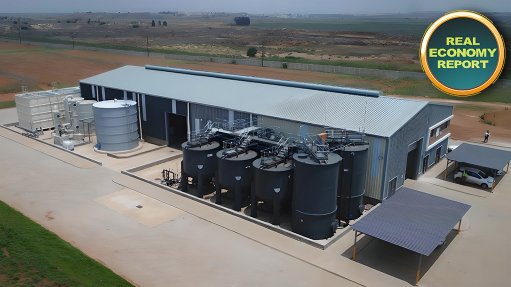SA’s exceptionalism myth
With the great Nelson Mandela at its helm back in 1994, South Africa appeared to be on a trajectory different to the trajectories of other countries on the continent, many of which had seen the early promise of the democracy dividend go up in smoke as the new rulers – erstwhile comrades in the struggle for independence – prioritised enriching themselves at the expense of the masses.
The Democratic Republic of Congo’s (DRC’s) Mobutu Sese Seko is a typical example of post-independence African leaders who engaged in industrial-scale looting of State resources while ordinary citizens slid deeper and deeper into poverty. He reportedly looted up to $15-billion during his 32-year regime, which ended in 1998, toppled by an armed insurgency. But Mobutu was not the only egregiously venal head of State to emerge from Africa; there have been characters like Nigeria’s Sani Abacha, Angola’s Jose Eduardo dos Santos and Equatorial Guinea’s Teodoro Obiang Nguema, who wrested the Presidency in a bloody coup in 1979 and remains in office.
Given the almost saintly aura around Mandela, many in this country and beyond were convinced Mzansi would not go the way of the Angolas, DRCs, Nigerias and Equatorial Guineas of this world. Celebrated Indian-born Ugandan academic Mahmood Mamdani, a one-time holder of the AC Jordan chair of African studies at the University of Cape Town (UCT), observed in 1998: “When I came to UCT two years ago, I was aware that the notion of South African exceptionalism had stained the South African intelligentsia with a prejudice that was more than skin deep. What I was not prepared for was the ferocity with which it would be defended.”
Now we know about what happened during the so-called nine wasted years. Billions of rands were spirited away from the fiscus, with this loot finding its way into the bank accounts of individuals. While some, such as the Gupta brothers, were private individuals, others were people who occupied influential positions in the State. As became apparent during the commission of inquiry led by Chief Justice Raymond Zondo, State capture may have taken place with the connivance of former President Jacob Zuma. Although the amounts looted may differ, there are clear parallels here between South Africa and countries like the DRC, Angola, Nigeria and Equatorial Guinea. South Africa is definitely no exception.
Then there is the little matter of power outages, something one would only associate with countries such as Nigeria – but not South Africa – until 2008. While South Africa has not yet reached the stage where the electricity grid collapses, which has happened at least four times in Nigeria this year, our ‘new normal’ often includes blackouts of up to several hours’ duration, just like in many African countries.
But what many would not have expected is that the political elites in this country would be so tone deaf as to want to exempt themselves from paying for municipal utilities while the rest of the citizens, many of whom earn a tiny fraction of their fat salaries, have to fork out for these services every month-end. As is now public knowledge, this move has since been scrapped, after the political opposition kicked up a rumpus on getting wind of it. Good on them!
The utilities scandal shows that politicians tend to be greedy, be they the from-elsewhere-in-Africa variety or their South African counterparts. It’s some kind of herd instinct, really, and no country is immune from it.
But one hopes that South Africa is cleansed of grand-scale corruption and other ills and that Eskom and other key parastatals are fixed. Only then will the trajectory that many envisioned the country would take those many years ago materialise and South Africa be great again.
Comments
Press Office
Announcements
What's On
Subscribe to improve your user experience...
Option 1 (equivalent of R125 a month):
Receive a weekly copy of Creamer Media's Engineering News & Mining Weekly magazine
(print copy for those in South Africa and e-magazine for those outside of South Africa)
Receive daily email newsletters
Access to full search results
Access archive of magazine back copies
Access to Projects in Progress
Access to ONE Research Report of your choice in PDF format
Option 2 (equivalent of R375 a month):
All benefits from Option 1
PLUS
Access to Creamer Media's Research Channel Africa for ALL Research Reports, in PDF format, on various industrial and mining sectors
including Electricity; Water; Energy Transition; Hydrogen; Roads, Rail and Ports; Coal; Gold; Platinum; Battery Metals; etc.
Already a subscriber?
Forgotten your password?
Receive weekly copy of Creamer Media's Engineering News & Mining Weekly magazine (print copy for those in South Africa and e-magazine for those outside of South Africa)
➕
Recieve daily email newsletters
➕
Access to full search results
➕
Access archive of magazine back copies
➕
Access to Projects in Progress
➕
Access to ONE Research Report of your choice in PDF format
RESEARCH CHANNEL AFRICA
R4500 (equivalent of R375 a month)
SUBSCRIBEAll benefits from Option 1
➕
Access to Creamer Media's Research Channel Africa for ALL Research Reports on various industrial and mining sectors, in PDF format, including on:
Electricity
➕
Water
➕
Energy Transition
➕
Hydrogen
➕
Roads, Rail and Ports
➕
Coal
➕
Gold
➕
Platinum
➕
Battery Metals
➕
etc.
Receive all benefits from Option 1 or Option 2 delivered to numerous people at your company
➕
Multiple User names and Passwords for simultaneous log-ins
➕
Intranet integration access to all in your organisation















